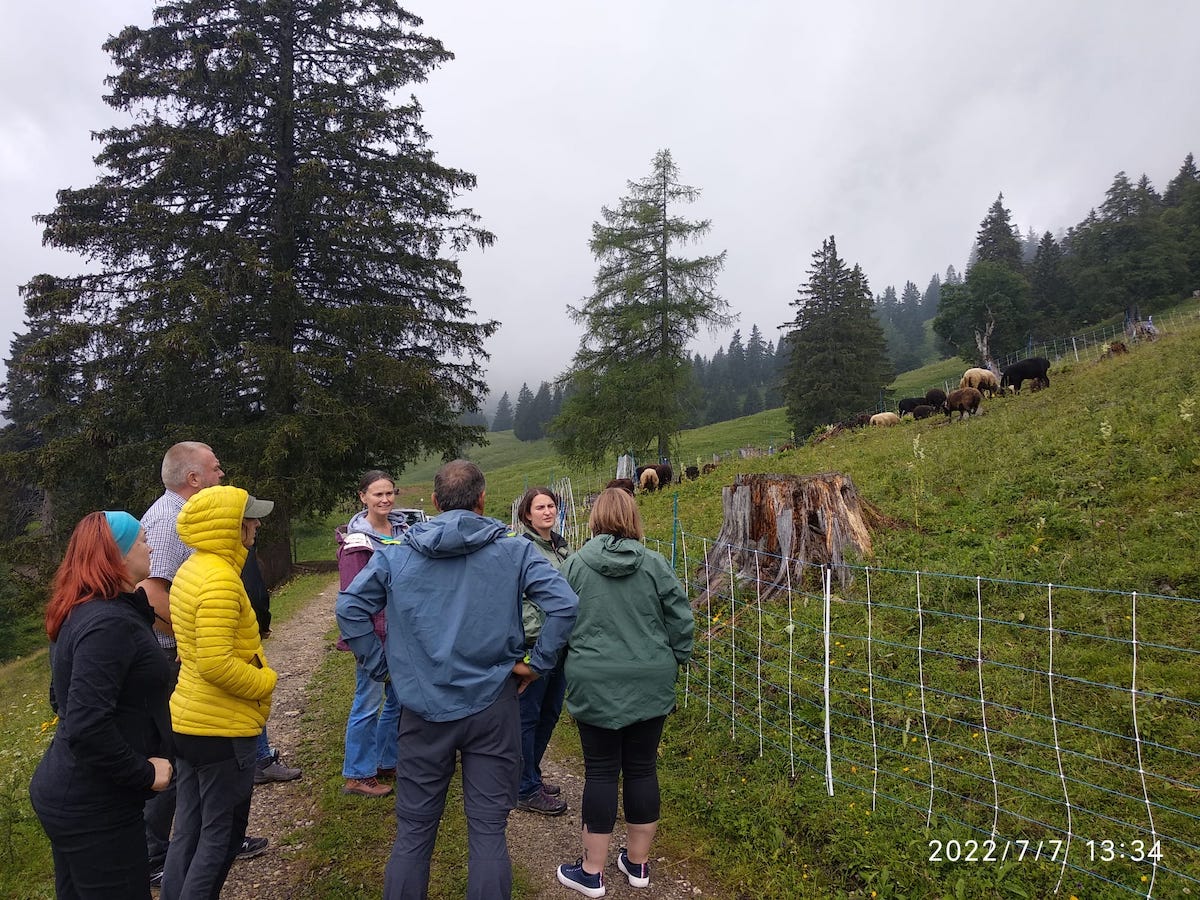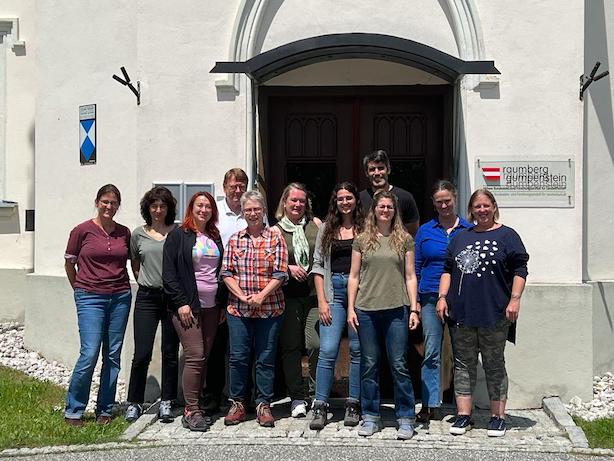The project meeting for the Erasmus+ project EU4Shepherds took place from July 5th to 7th, 2022 at the HBLFA Raumberg-Gumpenstein and at the Grabnerhof Agricultural College.

Important focal points were the training program for shepherds and the guidelines for trainers. Demonstration videos are also produced as instructions. The focus is on knowledge about the connections in nature, feeding and breeding, products and their production (cheese, wool, meat and leather), economics, administrative processes and funding as well as marketing.
The event concluded with an interesting excursion to the Grabneralm, at the entrance to the Gesäuse National Park. There, the professional management of the sheep herds could also be observed up close. An interesting best practice example for the international conference participants is the training branch with a focus on alpine farming that will start in the next school year.
The program was organized by Schaumberger Silke and Huber Reinhard .
The project
Extensive livestock farming models are crucial for the sustainable conservation of important rural areas in Europe. They are the paradigm of ecological, social and economic sustainability. These models prevent depopulation of rural areas and have positive impacts on animal welfare and human health. Extensive animal husbandry provides the population in many EU areas with high-quality food and promotes the sustainable development of our society. Extensive animal husbandry is currently facing major challenges due to the effects of climate change such as dry seasons or animal health problems due to the increase in parasites and administrative restrictions on transhumance. In addition, it depends on the availability of shepherds. However, it is becoming increasingly difficult to find well-trained people who have the knowledge and experience to implement all aspects of extensive livestock farming. Shepherds are an aging group and the younger generation usually lacks access to appropriate education, training and experience. There is often no longer any motivation to become a shepherdess due to low social standing and the lack of specific vocational training.

Goals
The main objectives of EU4SHEPHERDS are:
- Improving and updating the training offer for extensive sheep farmers, taking into account current barriers (administrative and legal or logistical obstacles), threats (new climate scenario and its consequences) and opportunities (organic production trends, agrotourism, etc.). The offer is adjusted to ensure the sustainable maintenance of extensive animal husbandry.
- Adapting training methods (both for trainers and trainees) for on-the-job learning. This can ensure the sustainability of the profession and extensive sheep farming in rural areas.
- Easier and broader access to training and promoting the use of digital tools for training.
- Creating the basis for recognizing the values that shepherds bring to our society in social, ecological and animal welfare terms, as well as their importance in the fight against rural exodus, forest fires and climate change.
Result
The EU4Shepherds project aims to develop a common framework for a European certificate for shepherds.
partner
cesefor, Lower Saxony Chamber of Agriculture, aldeias de montanha, Agricultural University-Plovdiv, Archnetwork, HBLFA Raumberg-Gumpenstein, University of Agricultural and Environmental Education, Agrom-Ro, Fundación Monte Mediterráneo
PARTNER IN AUSTRIA
University of Agricultural and Environmental Education
Angermayergasse 1, 1130 Vienna, Telephone: +43 1 877 22 66-621636,
HBLFA Raumberg-Gumpenstein
Raumberg 38, 8952 Irdning-Donnersbachtal, telephone +43 3682 22451 242
More information








